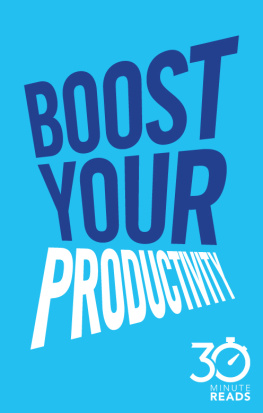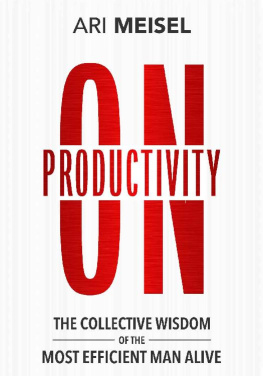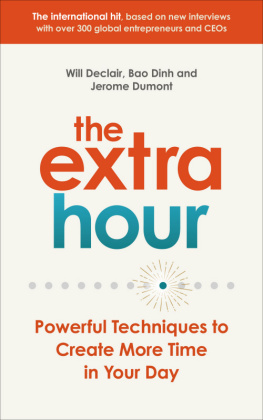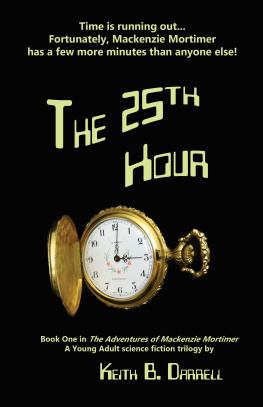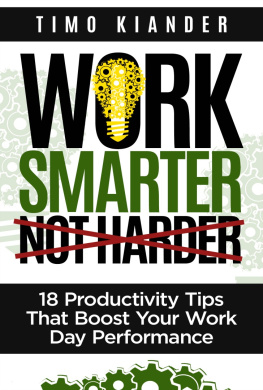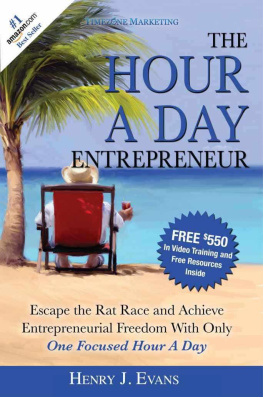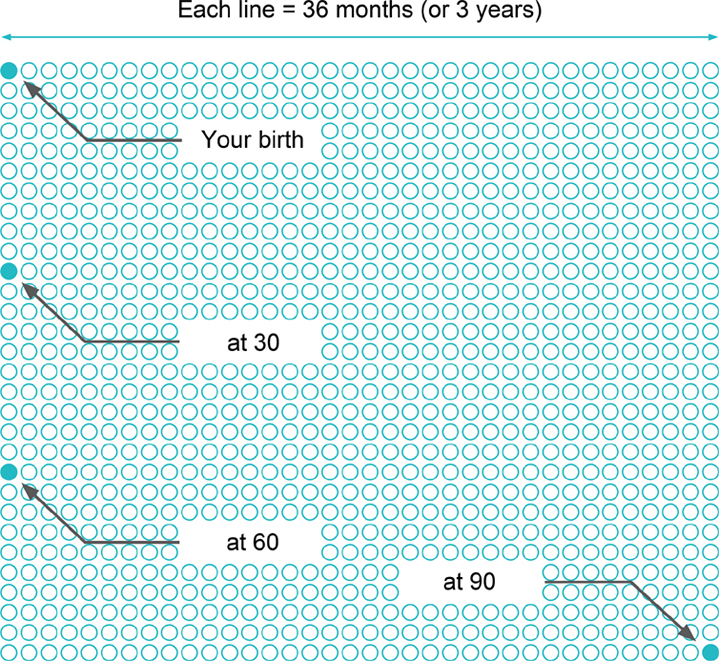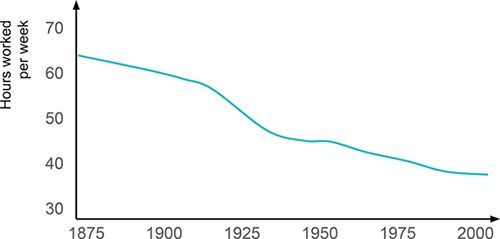The 25 th Hour
Supercharging Productivity: Secrets from 300 Successful Entrepreneurs
Guillaume Declair
Bao Dinh
Jrme Dumont
First published in July 2018
Copyright Declair - Dinh - Dumont, 2018
All rights reserved. Published by Jrme Dumont.
No part of this publication may be reproduced, or stored in a retrieval system, or transmitted in any form or by any means, electronic, mechanical, photocopying, or otherwise, without written permission of the publisher, except in the case of brief quotations in reviews. For information regarding permission, write to .
ISBN : 978-2-901240-04-4
www.25hbook.com
Contents
For all those who type with one finger,
and for those they drive crazy.
Before we get started
Life is short
First up, a diagram, or rather a series of circles.
Each circle represents a month of your life.
For most, its hard to think of life as anything but an infinite series of months, each one spilling into the next. But here they all are: the months of your life, mapped out one by one. If youre 30, 60, or 90 years old, heres exactly where you stand on the diagram.
The above infographic by Tim Urban, the author behind the fantastic WaitButWhy blog demonstrates one thing: that life is a finite resource, and far too short to waste.
In this context, productivity is not the end in itself, but a means to a better overall existence. By spending as little time as possible on uninspiring, tedious tasks, we can spend more on what really makes us happy.
In other words, mastering productivity can help us live more fully. For you, that could mean:
| Heading off on an adventure somewhere youve always wanted to go. |
| Enjoying long, meaningful conversations with friends over dinner. |
| Coming home early in the evenings to spend time with your kids. |
| Working on the projects that truly inspire you. |
The Progress Paradox - why are we working more?
Three centuries ago, youd need to work for about six hours in order to pay for the quantity of candles required to see you through a reading of this book. Today, thanks to rising revenue and technological advances that have dramatically lowered the price of lightbulbs, you now only need to work half a second to get the same amount of light.
Since the start of the Industrial Revolution, output efficiency has risen considerably across most economic sectors. As a result, the number of hours worked per person has dropped significantly since thenparticularly among blue-collar workers.
The average working week of a North American/Western European blue-collar worker
In 1930, the economist John Maynard Keynes predicted that with continuing advances in productivity, the 21 st century would give rise to a 15-hour working week for all.
And yet this never happened. In fact, in recent years, progress in productivity has pretty much come to a halt.
The Third Industrial Revolution sees rapid growth in the IT and communications sectors. But following an initial spike in productivity, growth slowed to such an extent that between 2010 and 2016, productivity in North America and Western Europe increased by just 0.5% per year As far back as 1987, Nobel Prize-winning economist Robert Solow observed that you can see the computer age everywhere but in the productivity statistics, and this still holds true.
Where economists once imagined a steady decrease in working hours, the average working week for a full-time employee in the US has remained virtually unchanged since 2001 at just over 47 hours compared with 42.6 in 2003.
These days, a laid-back lunch break is out of the question, and our workers are habitually underwater. Our friends work late into evenings and weekends, and the term burnout has become a standard part of our vocabulary. White-collar is the new blue-collar.
The introduction of machines successfully reduced the working week for blue-collar workers, but new technologies have not had the same benefits for their colleagues in the boardroom. Why?
Its a reasonable question. Whereas previous generations had little more than pens and paper to facilitate tasks, we now possess an impressive array of digital tools whose sole purpose is to make our jobs and lives easier, from streamlining tasks to full-on automating them.
One answer is that modern approaches to work actually make us less efficient. We waste too much time in pointless meetings, are endlessly interrupted in open-plan office spaces, and rely so heavily on digital technology that our smartphones, tablets and computers are constantly competing for our attention. Add in the constant stream of emails and text messages that endlessly disrupt our concentration, and it seems pretty clear that although we spend a lot of time at work, we dont actually get a whole lot of work done.
Our point here is that new technology should be used to liberate us from work, rather than tie us to it. We need to flip the roles in our relationship with digital technology and make it work for us, not the other way around. We should learn to harness the pressure we experience at work to motivate us, get organized, concentrate better, and work faster. By leaving the drudgery to digital technology, we can focus on the most creative and interesting aspects of our workand of our lives.
Happy are the lazy
More than anything, productivity is a question of finding the right mindset. For us, that mindset boils down to a single motto: embrace laziness.
To clarify, were not saying kick back and shirk your responsibilities, were saying get strategic about your to-dos by looking for ways to sidestep as many low-value tasks as you possibly can. Basically, anytime you find yourself grinding away at a long, repetitive, or boring task, you should ask yourself how you might tweak the way you work to avoid having to do it again in the future. Admittedly, faced with all our more pressing day-to-day matters, making time to reflect on how we work isnt easy. What is, and always will be, is simply to stay on autopilot and continue doing as youve always done. A few examples:
| Putting up with the same pointless meetings each week instead of taking the time to re-prioritize your schedule once and for all. |
| Wasting time on unimportant yet time-consuming tasks instead of training someone else to do them. |
| Deleting unread promotional newsletters one by one instead of just unsubscribing from them altogether. |
What we need to do is adopt an investment mindset whereby we put in the effort in the short-term to get results in the long-term. Basically, we should be thinking about our productivity the way a business would, and invest to succeed.
If a week goes by and you havent made any tweaks to the way you work, youre probably not examining your habits with a critical-enough eye. Its crucial to embrace the idea of continuous improvement and place this investment mindset at the heart of your routine.


